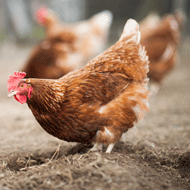Millions of hens to be culled after AI outbreak

Outbreaks in a number of states have resulted in the loss of over one million chickens and turkeys since January.
A flock of millions of hens will be culled following the outbreak of avian influenza at one of Iowa's largest farms.
The outbreak has been confirmed at Sunrise Farms in Osceola County. According to the company that operates the farm, it houses 3.8 million hens, however, the US Department of Agriculture (USDA) has reportedly said the flock numbers 5.3 million.
All birds on the farm, which is now under quarantine, will be culled to prevent the spread of disease, according to a statement released by the Iowa Poultry Association and Iowa Egg Council.
“We’ve had no other confirmed cases of avian influenza on any other egg farm in Iowa, and we’re taking every precaution we can to ensure it stays that way," said Randy Olsen, executive director of the organisations.
"Iowa’s egg farmers understand and share consumers’ concerns about the disease."
Since December 2014, there have been reports of highly pathogenic H5 strains of the virus in both backyard and commercial poultry flocks in the US, as well as in wild bird populations.
Outbreaks have also occurred in Minnesota, Missouri, Arkansas, the Dakotas and Kansas, resulting in the loss of over one million chickens and turkeys since January.
The virus has been detected in three Wisconsin poultry flocks, affecting over 160,000 birds in total, according to the state's Department of Agriculture, Trade and Consumer Protection.
On Monday (April 22), Wisconsin governor Scott Walker authorised the National Guard to help with the response to the outbreak. Federal resources are said to be 'thin' due to avian flu outbreaks in other states, particularly the Midwest.
The risk posed to human health is considered to be low, according to the Centers for Disease Control and Prevention.



 The Animal and Plant Health Agency (APHA) has updated its online reporting service for dead wild birds.
The Animal and Plant Health Agency (APHA) has updated its online reporting service for dead wild birds.